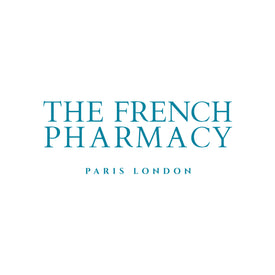So Winter is Here...

And your skin is already suffering.
Fear not, Dr Marine has the solutions.
First, it is best to understand what happens to your skin when the weather change for the colder (and drier).
The skin has three layers, each with a distinct role. The lowest or innermost layer consists of subcutaneous fat, which provides insulation, energy storage, and shock absorption. Above that is the dermis, which contains blood vessels, nerves, sweat and oil glands, and hair follicles. The top layer is the epidermis, the skin's main protective barrier and the level where drying occurs. It consists of stacked layers of cells that are constantly in transition, as younger, living cells rise from the lower part of the epidermis and eventually die and fall off after reaching the surface. This continuous cycle completely renews the skin about once a month.
Did you know that as temperatures decrease, your skin will produce 10% less oil for each degree drop in temperature leaving your skin feeling drier and tighter.
In a study published in the British Journal of Dermatology, researchers found that a protein called Filaggrin plays a very important role in keeping your skin barrier.
Filaggrin is degraded to amino acids that maintain hydration within the cells and provide protection against solar UVB photons. The process is essential for making sure your skin keeps producing its natural moisturising factor.
Cold, dry air can make your the skin cells shrink and push your filaggrin to degrade, which leads to that dry, scaly texture. You are likely to experience the texture change on your cheeks and hands, since that area of your skin is naturally lower in Filaggrin. Any further change in those areas will cause dry skin and even inflammation (why your skin gets really red in winter).
For those suffering from eczema or psoriasis, cold and dry weather can have an even bigger effect on your skin leading to seasonal flare-ups.
It is most important to update your skin care routine and switch to more hydrating skincare products. Hydrating products hydrate your skin cells meaning they increase their water content. Moisturising products, on the other hand, help prevent moisture from evaporating from your skin thus reinforcing your skin's barrier.
Look for ingredients such as Hyaluronic acid, urea or glycerin for hydrating properties and ceramides, shea butter or dimethicone for moisture.
You should also be using a humidifier to help with indoor dry air.

Winter Skincare Recommended by Dr Marine
Avène Eau Thermale Hydrance Aqua Gel
Institut Esthederm Intensive Hyaluronic Cream
Three different types of hyaluronic acid to intensively hydrate and stimulate the natural production of hyaluronic acid
La Roche Posay Lipikar Surgras
Avgel-cream made up of a 10% lipid replenishing concentrate that is soap-free and paraben-free, and is specifically designed for the dried out and uncomfortable skin of children and adults.





